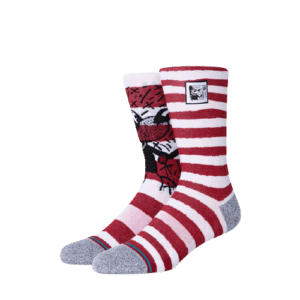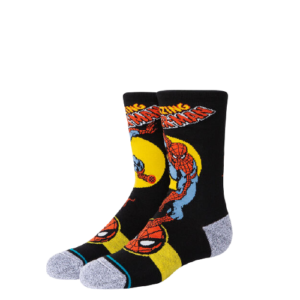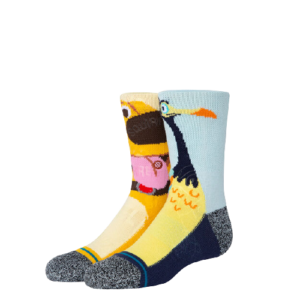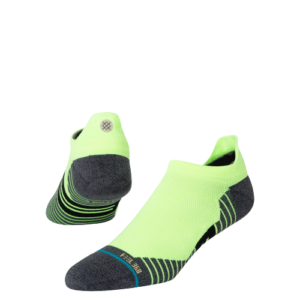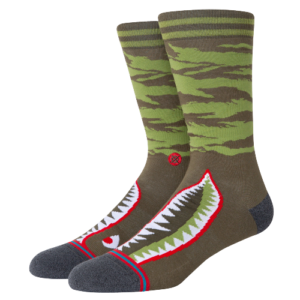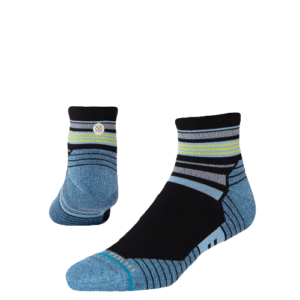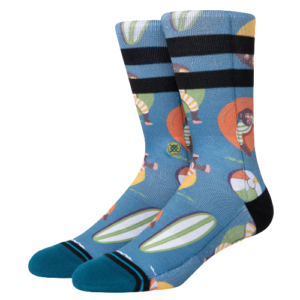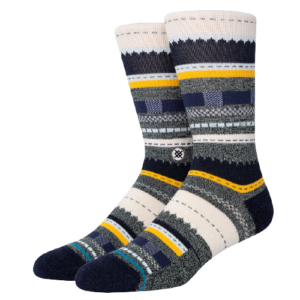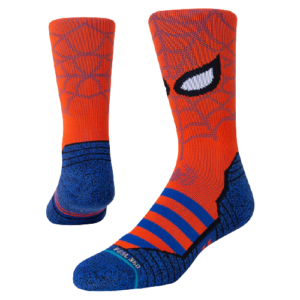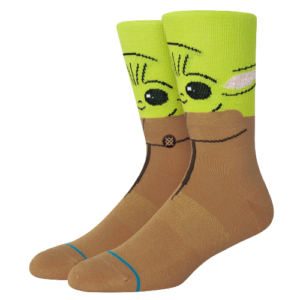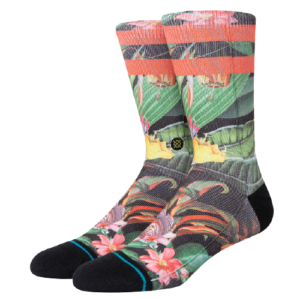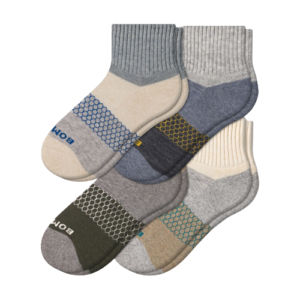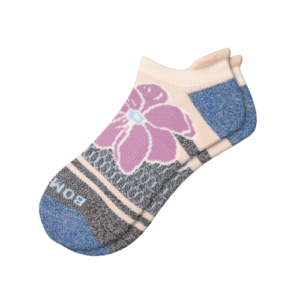Retailers are under pressure to offer quality anti-slip socks that don’t compromise on safety, comfort, or style—especially for fast-moving categories like babywear, elderly care, yoga, and hospital gear. The challenge? Sourcing quickly without sacrificing reliability.
To source anti-slip socks efficiently, retail buyers need factories with proven grip technology, low MOQs, fast sampling, and flexible compliance support. Choosing the right partner ensures faster time-to-market and stronger retail margins.
As a socks manufacturer who’s supplied thousands of anti-slip orders across 30+ countries, I’ve seen what works—and what doesn’t. In this article, I’ll walk you through how to source these high-demand socks fast and smart.
What Qualities Make Anti-Slip Socks Effective?
Recraft指令--Show close-up product visuals of anti-slip socks with silicone grips on the sole. Include patterns for babies, elderly, and athletes. Scene should include material texture and functional design. No text or distorted faces.
Retail buyers often focus on price, but product quality—especially for grip function—can’t be compromised. Customers expect anti-slip socks to work safely on tile, wood, and gym floors.
An effective anti-slip sock depends on grip placement, adhesive strength, and foot support. Buyers should test real performance before committing to volume.

What Materials and Coatings Work Best?
Silicone is the most common coating for anti-slip soles. It offers long-lasting adhesion and flexibility. Our lab-tested designs use dot or honeycomb patterns that balance traction and breathability. Cotton or bamboo uppers provide moisture control, and spandex improves stretch. Avoid vinyl-based grips—they wear off faster and may pose compliance issues in EU markets.
What Styles Are Most in Demand by Segment?
Here’s what retailers frequently request:
| Segment | Common Features | Color Trends |
|---|---|---|
| Babywear | Soft cotton, cartoon grips, elastic cuff | Pastel tones, animals |
| Elderly care | Full-foot grip, thick sole, easy-on fit | Beige, grey, navy |
| Fitness/Yoga | Heel/toe grips, breathable mesh | Black, purple, teal |
| Hospital Use | Sterile packaging, color-coded grips | Red (alert), green (OK) |
Knowing your end-user’s environment helps you choose the right grip shape and base fiber.
How Fast Can Factories Sample and Produce Anti-Slip Socks?
Recraft指令--Illustrate a sock sample room with fabric swatches, grip molds, and a technician preparing samples. Add boxes with “urgent” or “24H” labels to show speed. No text or distorted faces.
Sampling speed is critical for retail buyers, especially when launching private-label or seasonal lines. Waiting weeks for grip proofing or mold tests can delay retail launches.
At GlobalSock, we sample anti-slip socks within 5 working days, offering video proof of grip tests. Efficient suppliers streamline everything from CAD sketch to mold making.

What Are the Steps from Sketch to Grip Sample?
Here’s a simplified timeline we follow:
- Design Confirmation (1 day): You confirm logo or grip shape.
- Grip Plate Making (1–2 days): We laser-cut the mold.
- Sample Application (1 day): Grip is printed and cured.
- Testing (1 day): We conduct slip resistance test on standard flooring.
You’ll receive a sample photo or video with slip test data before final approval.
What’s a Typical Production Lead Time?
Once samples are approved:
| Order Size (Pairs) | Standard Lead Time | Urgent Lead Time |
|---|---|---|
| Under 5,000 | 18–22 days | 12–14 days |
| 5,000–20,000 | 25–30 days | 18–20 days |
| 20,000+ | 35–40 days | 28–32 days |
We accelerate dyeing and grip printing by using local partnerships in Keqiao, keeping all processes nearby.
What Compliance and Packaging Factors Should Buyers Consider?
Recraft指令--Create a packaging area view with labeled boxes of anti-slip socks for retail, showing eco-friendly, medical, and kids’ packaging variations. Include a shelf with compliance documents and EU labels. No text or distorted faces.
Different countries require different testing and labeling, especially for infant and elderly socks. Buyers sourcing for the U.S. or EU must avoid safety risks and regulatory delays.
Reliable factories provide documentation like REACH, OEKO-TEX, and ASTM test reports. Smart packaging saves money and builds trust at shelf level.

What Documents and Certifications Are Needed?
For bulk export, retail buyers typically request:
- EU Buyers: REACH-compliant grip ink, EN ISO 20344 (slip resistance)
- U.S. Buyers: CPSIA for baby socks, ASTM D3885 for wear resistance
- Retail Chain Buyers: Factory audit reports (BSCI, SEDEX), barcode/labeling files
At GlobalSock, we pre-test grip materials in a CNAS-accredited lab and offer QR code tracking for product compliance.
How Can Packaging Be Optimized for Retail and E-commerce?
Here are packaging solutions we offer:
| Buyer Type | Packaging Style | Benefits |
|---|---|---|
| Supermarkets | Hanger cards + hook | Retail-ready display |
| Online sellers | Zip bag + label | Dust-free, easy logistics |
| Baby brands | Box + transparent lid | Ideal for gifting |
| Hospital suppliers | Heat-sealed packs | Hygiene and traceability |
We also offer recycled and biodegradable packaging for brands prioritizing sustainability.
How to Avoid Delays and Get Socks Delivered On Time?
Recraft指令--Show a shipping and loading dock with anti-slip sock cartons labeled for Europe, U.S., and Asia. Include a digital screen with freight options and workers scanning boxes. No text or distorted faces.
Shipping delays hurt retail schedules. Some anti-slip socks, like hospital use or holiday-themed kids’ socks, must launch on time. A smart sourcing plan includes logistics foresight.
By choosing factories with multimodal logistics options and real-time freight support, retail buyers can reduce customs hold-ups and meet shelf deadlines confidently.

Which Shipping Methods Work Best for Retail Orders?
Here’s what works for our clients depending on volume and urgency:
| Method | Best For | Transit Time |
|---|---|---|
| DDP Air Express | Small urgent orders | 6–10 days |
| DDP Rail Freight | EU bulk orders | 20–25 days |
| FOB Sea Freight | High-volume restocks | 28–40 days |
Our Keqiao hub integrates with bonded warehouse services, allowing pre-clearance before loading. This helps you avoid surprise port charges.
What Are the Common Causes of Delay—and How to Avoid Them?
Top causes we’ve seen:
- Unclear grip mold specs → Resolve via digital proofing
- Certification delays → Ask suppliers for pre-tested inks
- Holiday blackouts → Book materials before Chinese New Year or National Week
Our export team gives 3-week calendars with key risk windows, helping you make better decisions ahead of time.
Conclusion
Anti-slip socks aren’t just a niche anymore—they’re mainstream. But sourcing them fast and reliably takes more than a quick Alibaba search. You need the right grip formula, real-time sampling, and a team that knows compliance and logistics inside out.
At GlobalSock, we’ve supported retail buyers from babywear startups to medical importers and large fitness brands. We offer ready samples, low MOQs, lab-tested coatings, and delivery options from DDP air to sea containers.
Sourcing anti-slip socks doesn’t have to be slow or risky. With the right partner, it’s your competitive edge. Let’s help you launch your next sock line—grip-first.


